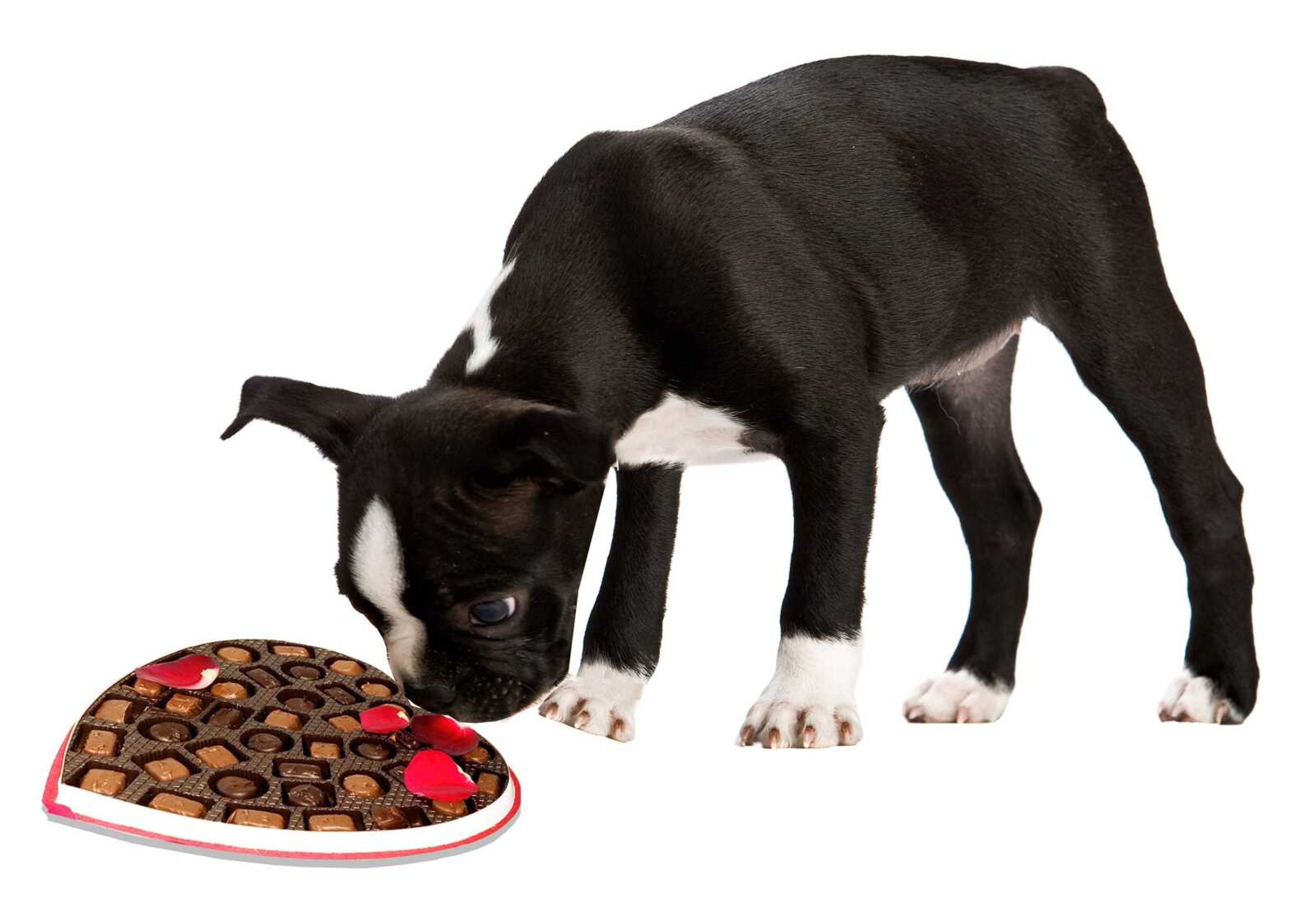What should be on every animal's 'do not eat' list
Those Valentine's Day chocolates may be a tasty treat for you, and even contain healthy antioxidants -- but they're toxic to your pet's red blood cells and may even cause neurological damage. "With dogs ... one of the most common things I hear is that 'I turned my back and he jumped on the table and got the chocolate,'" says Dr. ...
Those Valentine's Day chocolates may be a tasty treat for you, and even contain healthy antioxidants -- but they're toxic to your pet's red blood cells and may even cause neurological damage.
"With dogs ... one of the most common things I hear is that 'I turned my back and he jumped on the table and got the chocolate,'" says Dr. Sean Byrd, a veterinarian at Skyview Animal Clinic in Cape Girardeau. "I treated three or four sets of dogs over the holiday season where the owners came home to an empty chocolate container. We lost a pup six months ago due to chocolate."
Lesser-known foods to avoid include grapes and raisins, which are toxic to pets' kidneys, and garlic and onions, which can cause blood disorders. Dr. Ann Seabaugh, a veterinarian at LaCroix Pet Hospital in Cape Girardeau, knows some pet owners like to toss grapes and raisins to their pets -- but they need to break the habit before their pets start to like grapes and raisins so much that they get into large quantities of them.
Pets tend to be lactose intolerant, so they need to avoid milk products, adds Byrd. Fatty meats can stimulate pancreatitis, and animals need to stay away from bones, period, says Seabaugh.
"They can cause fecal impactions, intestinal blockages and potential intestinal perforation from the points of the bones. It's overall GI havoc," she says. Ingesting bones might even require X-rays and surgery for your pet. "That's no fun for anybody," says Seabaugh.
New research proves that xylitol, a sweetener used in sugar-free chewing gym and children's cough syrups, is extremely toxic to animals, say Byrd and Seabaugh.
"Just once piece of gum is enough to do damage in a small dog," says Seabaugh. "A dog's body, for some reason, recognizes it as sugar and secretes insulin that creates a dangerous dip in blood sugar." It's possible that xylitol causes kidney disease as well, says Byrd.
"Keep these foods out of the pet's reach and keep trash cans behind closed cabinet doors," says Seabaugh. Trash cans with a flip-top lid usually aren't enough to keep pets out of the trash. "Teach your kids from when they're little on up, that their food is their food, not the animals' food," she adds. "Around holiday time, advise friends and family not to feed pets from the table."
If your pet does eat one of these problem foods, you need to call your veterinarian right away, say Byrd and Seabaugh.
"The No. 1 thing is getting them to vomit. There are things we can do and, if we're too far away, that the owners can do to get them to vomit and get it out of their system as soon as possible," says Byrd. Pets can also be given a medicine to keep the food from absorbing as well into their system.
"In other instances, we might need to see the animal to take X-rays of any bones that are causing problems," says Seabaugh. Whatever your pet has gotten into, it's important to address the issue immediately before much damage is done, agree Byrd and Seabaugh.
Connect with the Southeast Missourian Newsroom:
For corrections to this story or other insights for the editor, click here. To submit a letter to the editor, click here. To learn about the Southeast Missourian’s AI Policy, click here.









